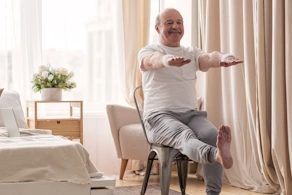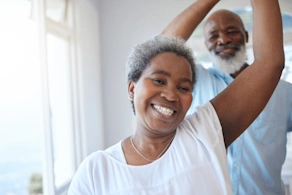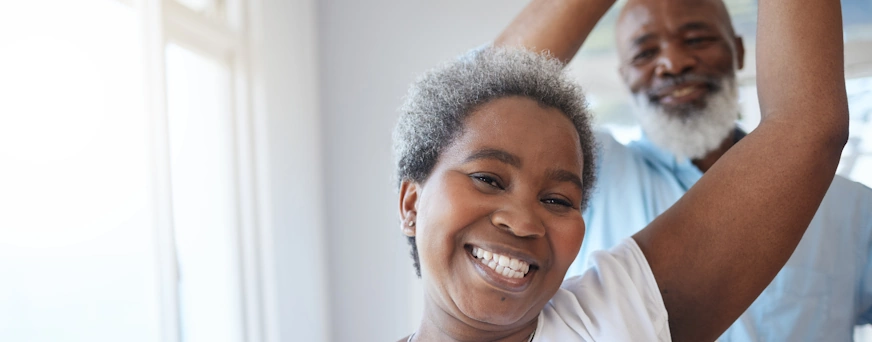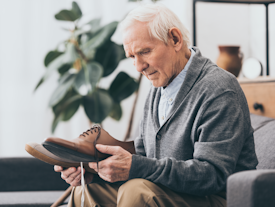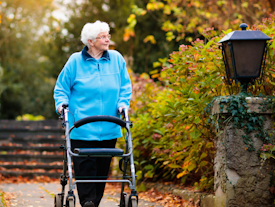Vertigo in Seniors: How to Prevent Falls and Improve Balance
Do you know how severely dizziness can affect elders? Dizziness in elderly patients is not an experience that lasts but something that will significantly affect a patient's ability to balance properly, thus exposing them to fall and injury risks.
The disease is linked to the ageing process. It causes difficulties in everyday living and decreases one's independence.
Knowing its causative factors and preventive measures while seeking professional help helps a lot. Practical strategies, including home safety changes and exercises made to improve posture, can help enhance confidence among seniors and, therefore, reduce the threat of falls occurring.
This study will look at the effective treatment of vertigo in the elderly so that they can move around with comfort and independence and be free from falls.
Life Assure Product Quiz
Take our 30 second quiz and discover which Life Assure medical alert device is the right fit for you or a loved ones.
Life Assure Product Quiz
Take our 30 second quiz and discover which Life Assure medical alert device is the right fit for you or a loved ones.
Understanding Vertigo in Older Adults

The dizzy or spinning feeling is termed vertigo, and this generally occurs because of problems in the inner ear or even the brain.
This might occur to any person, but seniors are mostly affected because they experience many changes that accompany age and other conditions.
Causes of Vertigo among the Elderly:
●Benign Paroxysmal Positional Vertigo (BPPV): BPPV is due to the lodging of calcium particles inside the inner ear, known as canaliths that disturb the signals for balance travelling from the inner ear towards the brain and trigger dizziness.
●Vestibular Neuritis or Labyrinthitis: It is an infection caused by viruses that inflames the inner ear and results in both vertigo and hearing disorders.
●Meniere's Disease: This is a chronic disorder; fluid accumulation in an abnormal amount within the inner ear causes vertigo, tinnitus, and, at times, hearing loss.
Common Symptoms to Watch For:
●A sudden spinning feeling or dizziness
●Nausea or vomiting
●Stumbling while walking or standing
●Deafness or tinnitus
●Blurred or double vision at episodes of dizziness
Tips to Prevent Falls Caused Due to Vertigo in the Elderly
Vertigo in seniors is a very serious issue, and several tips can be followed to prevent falls and imbalance due to vertigo.
Install Grab Bars and Handrails:
Install the grab bars in the bathroom before toilets, bathtubs, etc. Install strong handrails at all steps and corridors that help old people when walking.
Improve Lighting:
All rooms in the house, including corridors and stairs, should have good lighting. Motion-sensor lights or night lights prevent falling in dimly lit spaces.
Remove Hazards Tripping:
Loose rugs, electric wires, or other objects that could be tripped over should be removed from pathways. Levels must be attained on floors, and furniture must be arranged so people do not have to sidestep to pass safely.
Avoid Slippery Mats:
Place non-slip mats in bathrooms and kitchens. Non-slip mats give more grip to the surface, making it less likely to slip when wet or slippery.
Usage of Supportive Footwear:
Always advise patients, especially the elderly, to use shoes that have a non-slip sole and proper arch support. Avoid using slippers, heels, or flip-flops since these may compromise stability.
Avoid Sudden Movements:
Advise geriatric patients to rise slowly and carefully when getting out of a chair or bed or by moving their head. The jerking motions would have to be what caused vertigo and the rising incidence of falls.
Schedule Regular Health Check-Ups:
Normal eye and ear check-ups keep good vision and hearing. Maintaining the senses of two things is important because maintaining balance also mainly depends on having good eyes and ears. So, sometimes conditions like cataracts or just hearing loss are quite making a lot of difference.
Vertigo Exercises to Improve Stability in Seniors

Incorporating the correct exercises can make a significant improvement in one's balance and muscular strength, therefore relieving one of the vertigo symptoms.
Head Turns Walking:
Walk straight while walking at a slow pace with your head bent and twisted to one side and then to the other. The retraining causes the vestibular system to tolerate the motion of the head without causing dizziness.
It begins slowly and becomes wider ranges as comfort permits. This exercise is very useful for seniors who have become unstable with dynamic movements.
Seated March:
Sit in a sturdy chair with feet flat on the floor. Lift one knee as high as possible without moving the rest of your body, then lower that knee and alternate legs to mimic marching.
This simple yet effective exercise strengthens the lower body muscles, especially the thighs and hips, all of which help to stabilize standing or walking bodies.
Side Step:
Stand upright, then step sideward slowly with the right leg. Step left alongside that right; repeat several times in a direction, repeat in the opposite direction, and return to position.
Sidestep exercises those lateral stabilizers, an under-exercised muscular group important for preventing falls based on side movement.
Clock Reach:
Stand in the middle of a clock face with noon right in front of you. Lift one foot off the ground a little to balance and use the other hand to reach toward different "times" on the clock (such as 12 o'clock, 3 o'clock, 6 o'clock).
This exercise works the balance muscles, strengthens the core, and improves flexibility because it engages many muscle groups at once.
Medical Help: When to Call the Experts?
Lifestyle changes and exercises may alleviate such severe vertigo symptoms, but there are times when a medical professional is called upon to help.
Knowing when to go to the doctor is equally as important in vertigo management to avoid complications from arising. The elderly need to visit the doctor if any of these happen:
●Prolonged periods or days with severe dizziness that persists.
●Sudden hearing loss and tinnitus-hearing ringing sound.
●Weak ability to walk or standing balance.
●Recurring convulsion and loss of consciousness episodes
●Symptoms presented with intense headaches and blurred vision.
Conclusion
Vertigo in seniors can be frightful, but optimum home safety steps, properly targeted exercises, and timely medical consultation can also be tackled. Preventing falls and enhancing balance is not only a way to improve the quality of life but also helps gain independence.












 Get Help With The Push Of
A Button
Get Help With The Push Of
A Button

